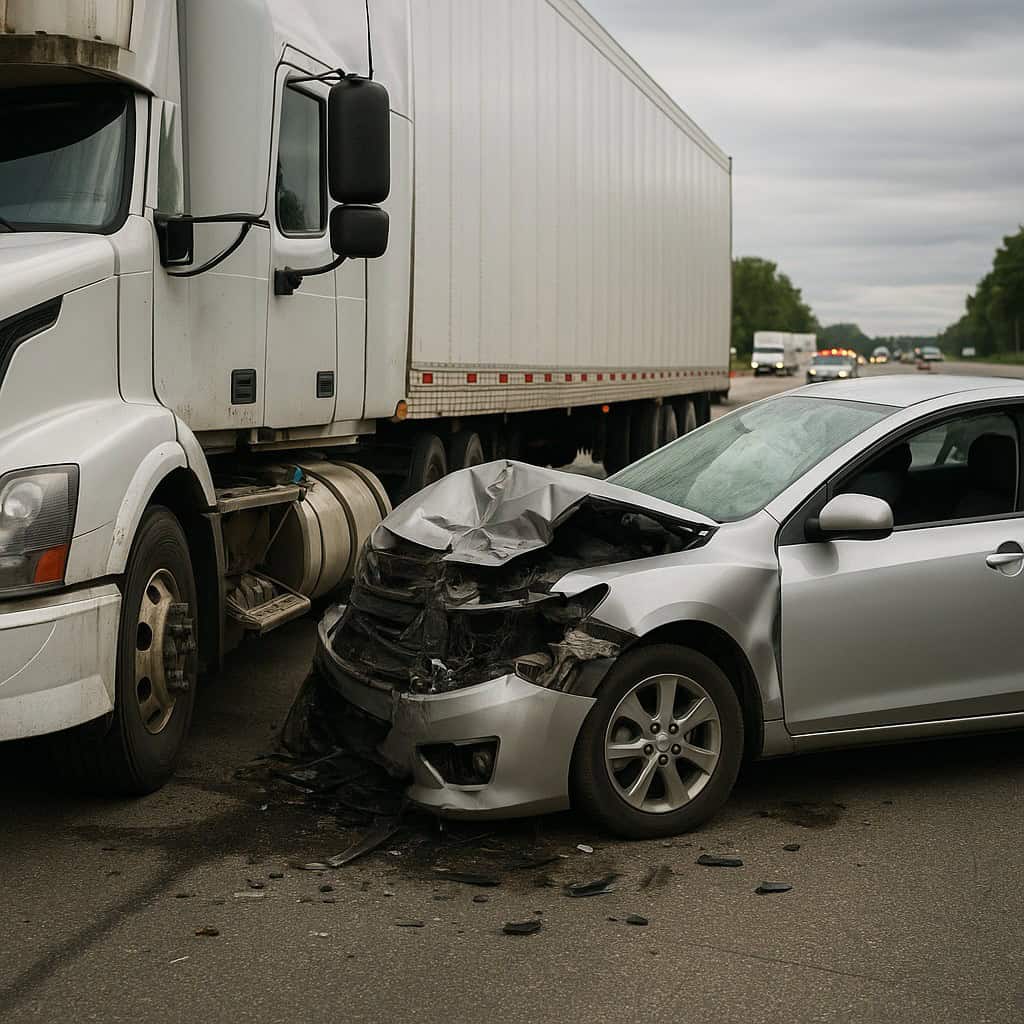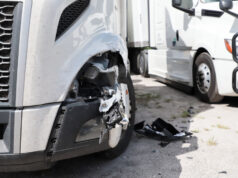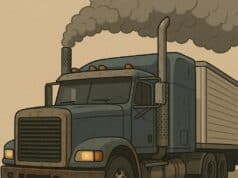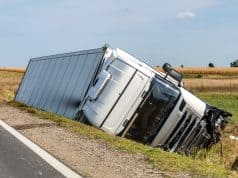
Freight corridors like I-10, I-15, and SR-60 see heavy truck traffic. Unfortunately, the combination of different vehicles, including trucks, driver error, and road or weather conditions, can cause crashes.
If you’re hit by a big rig, what you do in the first 72 hours can decide your case’s outcome and your future recovery. Commercial truck accidents are far more serious than regular car crashes. The injuries are severe, and the evidence is complex. What you do after a truck accident will determine if you can build a strong case or lose it.
| Quick Action Checklist: Your First StepsSeek immediate medical care and call 911.Preserve as much evidence as possible from the scene. Take photos of the accident, including all vehicles involved, visible damage, and any other relevant details.If you have a dashcam or captured the accident on your phone, save the video immediately.Write down the name of the trucking company, their USDOT (Department of Transportation) or MC (Motor Carrier) number, and any unit numbers visible on the truck.Consult a lawyer about a preservation letter for electronic data, like ELD (hours-of-service), ECM, or truck black box data, telematics, and in-cab dashcam.Avoid giving recorded statements without legal advice.Legal deadlines can be short. Make note of all key dates and ensure you meet them. Keep copies of all notices. |
What to Do After a Truck Accident At the Scene
Call 911 and seek medical care – Even if you feel fine, adrenaline masks serious injuries. Get checked by paramedics and document everything.
Take photos and video immediately – Capture vehicle damage, positions, skid marks, road signage, lighting conditions, and debris. Don’t assume the police will photograph everything you need.
Identify the truck and company – Record the truck company name, USDOT number, MC number, and trailer/unit numbers. These details are crucial for tracking down the responsible parties.
Gather witness information – Get names and phone numbers from anyone who saw the crash. Ask witnesses to provide brief statements if they are willing to do so.
Preserve your dashcam and phone footage – Back up any video immediately. This footage could be the most important evidence in your case, but it can be easily lost or overwritten.
What Evidence to Preserve in the First 72 Hours
The clock starts ticking the moment your accident happens. Commercial trucks generate massive amounts of data, but much of it gets automatically deleted within days or weeks.
Here’s what you need to secure fast:
Digital Truck Accident Evidence
- Request preservation of ELD records – Electronic Logging Devices track drivers’ hours-of-service. This data determines whether the driver was legally permitted to be on the road or was driving while fatigued, in violation of federal regulations.
- Secure ECM or “black box” data – The Engine Control Module logs speed, braking, throttle position, and other crash data. This electronic evidence doesn’t lie about what happened in the moments before impact.
- Preserve telematics and in-cab dashcam footage – Modern trucks record extensive data about driver behavior, route planning, and vehicle performance. In-cab cameras capture what the driver was doing right before the crash.
Off-Scene Video Sources
- Contact nearby businesses immediately – Warehouses, gas stations, and businesses often have security cameras that captured your accident. This footage typically gets overwritten within 30-90 days, so request preservation quickly.
- Check for traffic cameras – City and state traffic cameras may have recorded the crash. Contact the appropriate transportation department immediately to request footage preservation.
Vehicle Evidence
- Photograph everything before repairs – Document all damage inside and outside both vehicles. Don’t let insurance companies pressure you into quick repairs before proper documentation.
- Preserve key vehicle parts – Don’t discard damaged components that might reveal mechanical failures or impact patterns.
Paper and Electronic Records
- Demand bills of lading and dispatch records – These documents show what the truck was carrying, where it was going, and what instructions the driver received.
- Request maintenance records – Poor truck maintenance causes accidents. Service records can reveal whether known problems were ignored.
Preservation Letter
- A preservation letter is a formal legal notice telling all parties to keep relevant evidence so it isn’t deleted or destroyed. This single document can save evidence worth millions to your case. Don’t wait; this letter needs to go out within days of your accident.
Who May Be Responsible for Your Truck Accident
Truck accidents often involve multiple responsible parties, which means multiple sources of compensation for your injuries:
- The driver and motor carrier the most obvious liable parties for on-duty negligence and hours-of-service violations.
- Broker or dispatcher – May be liable for negligent selection of unsafe drivers or unrealistic delivery schedules.
- Shipper or loader – Responsible for improper loading or cargo securement that causes crashes.
- Maintenance or repair vendors – Liable when brake failures, tire blowouts, or other mechanical problems cause accidents.
- Manufacturers – Accountable for defective truck parts that contribute to crashes.
- Public entities – May be responsible for dangerous road conditions or inadequate signage, though special notice rules often apply.
What to Avoid When Talking to Insurers
After a truck accident, one of the most important steps you need to take is notifying the insurance companies promptly. However, it’s equally important to approach this step with caution, especially when providing recorded statements. Insurance adjusters are highly trained to ask questions in a way that could lead you to unintentionally downplay your claim.
When speaking to an adjuster, do the following:
- Stick to the basic facts about the accident.
- Recount what happened simply and clearly, but resist the urge to guess about fault or provide speculative details, especially regarding your injuries.
For instance, what feels like minor soreness immediately after the truck accident could turn out to be something much more serious, such as spinal damage or a herniated disc, which might only show up on an MRI or with further medical evaluation weeks later. You don’t want to inadvertently minimize the extent of your injuries by speaking too soon.
It’s always a good idea to talk to a legal expert who knows the ins and outs of truck accident claims. They’ll understand how insurance companies operate and make sure your rights are protected.
Deadlines You Can’t Miss in Truck Accident Claims
Truck accident cases come with tight deadlines that differ depending on where you are. Miss one of these, and you could lose your chance at compensation.
Here’s what you need to know:
- Injury and wrongful death lawsuits have state-mandated filing deadlines, typically ranging from one to three years from the accident date.
- Claims involving public entities often require early administrative claims before any lawsuit can be filed. These deadlines can be as short as six months.
Mark those important dates and save every notice, letter, and mailing receipt. Don’t leave it to memory.
A Heads-Up for Californians
If you’re dealing with a public entity in California, you’ve only got six months from the incident to file a claim. Different rules may apply depending on whether state, county, or city vehicles were involved. For a plain-English overview of common CA deadlines, see California accident claim deadlines.
When You Need a Lawyer Immediately
In some truck accident cases, having legal representation promptly is crucial. These cases often involve complex factors, such as serious injuries, multiple parties, or disputes over liability. Acting quickly ensures your rights are protected from the start.
If you’re unsure whether your case requires immediate action, it’s always better to consult an experienced truck accident attorney who can guide you through the process and help you get the support you need.
When Legal Representation Is Needed After a Truck Crash
- Serious injuries – The more severe your injuries, the higher the stakes and the more aggressive the defense will be.
- Multi-vehicle crashes – Complex accidents with multiple victims require sophisticated legal strategies.
- Suspected hours-of-service violations – Federal trucking regulations are complex, and violations can dramatically increase your compensation.
- Loading or cargo problems – Improperly secured or overweight loads involve specialized liability issues.
- Public entity involvement – Government liability claims have unique procedures and deadlines.
- Risk of lost evidence – If critical evidence might disappear, you need a lawyer to issue preservation letters immediately.
Frequently Asked Questions
How do I get truck black box data and ELD records?
You typically need a lawyer to send a preservation letter and formal discovery requests. Trucking companies won’t voluntarily turn over this potentially damaging evidence, but they’re legally required to preserve it once properly notified.
Can multiple companies be liable after a truck crash?
Absolutely. Truck accidents often involve the driver, trucking company, cargo loaders, maintenance providers, and even manufacturers. Each liable party represents additional insurance coverage for your injuries.
How fast should I request warehouse and traffic camera footage?
Immediately. Most businesses overwrite security footage within 30-90 days. Traffic cameras may cycle even faster. Every day you wait reduces your chances of securing this crucial evidence.
Do rules change if a city or county truck was involved?
Yes. Government liability claims typically require earlier notice and follow different procedures than private trucking company claims. These deadlines are often much shorter and strictly enforced.
Take Action Now to Protect Your Future
The first 72 hours after a truck accident determine whether you’ll have a strong case or a weak one. Critical evidence disappears every day you wait, and insurance companies use every delay against you.
Don’t face this fight alone. Trucking companies have teams of lawyers and investigators working to minimize their liability from the moment your accident happens. You deserve the same level of protection and advocacy for your rights.
If you’ve been in an accident with a commercial truck, it’s important to act quickly. Make sure to document everything, hold onto any evidence, and get in touch with experienced legal help right away.
Disclaimer: This content is intended for general informational purposes only. Laws and regulations vary by state and depend on the specific details of each situation.






